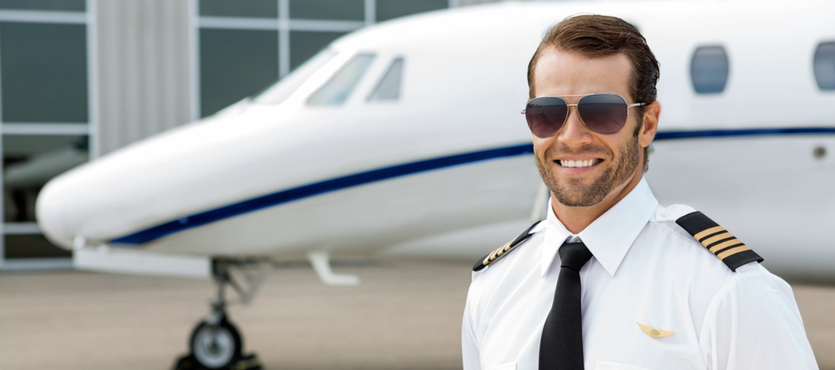As a pilot or a flight school student, you know the value of sunglasses not only for their unique style but also for their unmatched function. Aviator sunglasses have been made popular by blockbuster films and favorite television shows. Let’s explore the best sunglasses for pilots and the features which enhance their function and style.
Selecting Your Pilot Sunglasses
As you begin your search for the perfect aviator sunglasses, the first choice you will likely encounter is whether to choose polarized lenses. As a pilot or future pilot, you know the bright light your eyes are exposed to and the susceptibility to the glare and ultraviolet rays of the sun. Flying brings you closer to the sun’s harmful UV rays which damage both skins and eyes. Exposure to the sun’s bright light weakens your eyes and causes fatigue.
As a result the U.S. DoD (Department of Defense) offers these standard sunglass specifications for military pilots. The lenses should protect from both UVA and UVB light. Polarized lenses can help but in turn interfere with the glass in cockpits. Even so, polarized lenses protect against the sun’s glare and decrease the potential for eye damage.
Tinted sunglass lenses decrease brightness, helping pilots to see better in direct sunlight. When choosing tinted lenses, you also want to ensure the lenses are designed to protect against UV rays. The military specifications for optimal vision is a gray tint which features light transmittance 15 to 30 percent, thus minimizing distortion while still offering protection against sunlight exposure. Light transmittance is the measure of the amount of light that passes through the lenses. The more light which comes through means higher transmittance, so while a dark gray tint can look great, it blocks out too much color in the surrounding environment. Green and brown are also popular choices but make it more difficult for pilots to distinguish colored signs and signals. Tint color doesn’t change the protection level against UV rays, but gray is the best color for those working at high altitudes because it reduces glare and brightness effectively. Pilots will want to avoid photochromatic or transition lenses which while great for everyday wear take too long to transition to normal for pilot safety.
The other main consideration is the materials from which the sunglasses are made. For military pilots, aviator sunglasses need to be made of premium quality materials, because they don’t want to risk the frames breaking or the lenses getting scratched or shattered. Most aviator sunglasses’ frames are metal, some are plastic, while others are a combination of the two materials. Since these materials are designed to hold up against daily wear, personal style becomes a factor.
For lenses, there are also options. A favorite is crown mineral glass lenses which are considered the optimal quality option. The lenses accept tints readily and are resistant to scratching, but they are heavier than other options and have a higher Abbe value (light dispersion). Monomer plastic lenses offer great clarity, are impact resistant and lightweight but they aren’t scratch resistant. Polycarbonate plastic lenses are lightweight and offer greater impact resistance, but they have a lower Abbe value, thus higher levels of distortion. An anti-reflective coating can help with distortion and enhance optical quality.
Aviator sunglasses offer several options for temples (called the arms in layman’s terms). Bayonet temples are straight and are a great option for pilots who wear helmets or headgear. Cable temples extend back and curve over the ear, ideal for those who move their head frequently and don’t want their glasses slipping away. Skull temples are the most common types but can get in the way of helmets and headgear.
Lastly, these companies – American Optics, Ray-Ban, Oakley, and Randolph – as well as others offer high quality aviator sunglasses for pilots.
Are You Ready to Fly?
If you are ready to become a pilot, Airlink Flight School is ready to help, providing the necessary training to fulfill your dreams!

